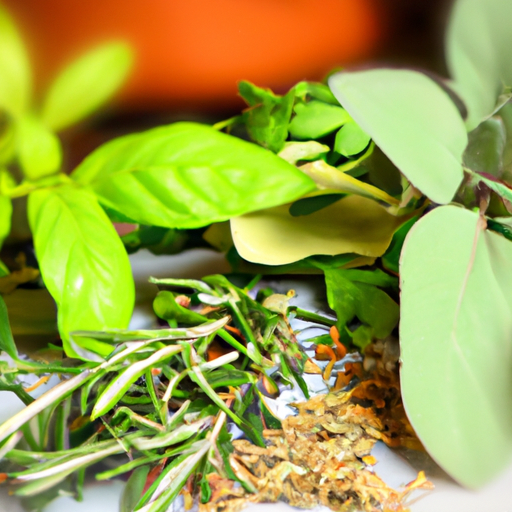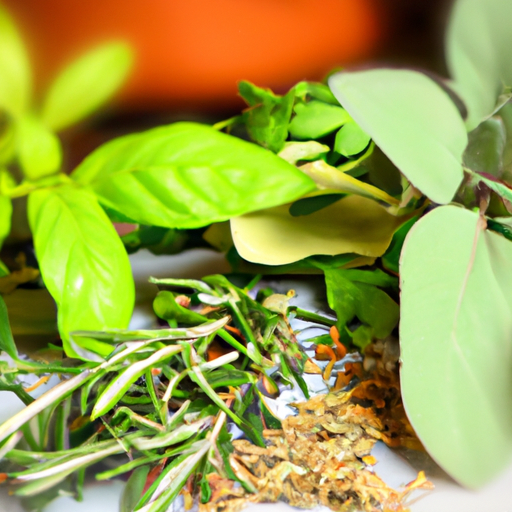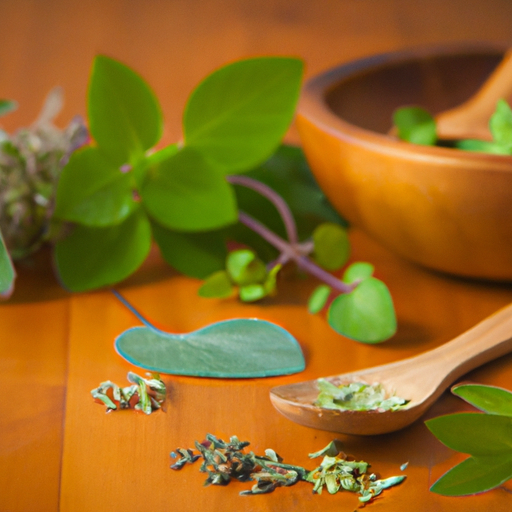Do you suffer from sinus infections? I know how uncomfortable and miserable they can make you feel. But have you considered trying out some natural remedies to alleviate your symptoms? In this article, we’ll be discussing herbs that can help with sinus infections. So, keep reading to find out more!
When it comes to sinus infections, the conventional approach usually involves antibiotics and over-the-counter decongestants. However, these medications often come with their own set of side effects and may not provide long-term relief. That’s where herbs can come in handy. Certain herbs have been used for centuries to treat sinus infections and can help reduce inflammation, promote drainage, and boost your immune system. By incorporating these herbs into your routine, you may find relief from your sinus infection symptoms.
One such herb is garlic, known for its powerful antimicrobial properties. Garlic can help fight off the bacteria causing your sinus infection and also provide relief from congestion. Eucalyptus is another herb that can be beneficial in clearing out your sinuses. It contains a compound called eucalyptol, which acts as an expectorant and can help break up mucus. Other herbs like turmeric, ginger, and peppermint can also offer relief from inflammation, congestion, and pain associated with sinus infections.
So, if you’re tired of dealing with the discomfort and inconvenience of sinus infections, give these herbs a try. In our upcoming article, we’ll delve deeper into how each of these herbs can be used to treat sinus infections and provide some effective remedies you can easily make at home. So stay tuned and get ready to kick sinus infections to the curb with the power of herbs!
Herbs For Sinus Infection
Causes of Sinus Infection
Sinus infection, also known as sinusitis, can be caused by various factors. One common cause is sinusitis, which occurs when the sinuses become inflamed and swollen. This can be the result of a viral or bacterial infection, or even allergies. Allergies themselves can also trigger sinusitis, as the body’s immune system reacts to allergens and causes inflammation in the sinuses.
Symptoms of Sinus Infection
The symptoms of a sinus infection can vary depending on the individual, but there are a few common ones to look out for. Nasal congestion is often a telltale sign, as the swelling in the sinuses can block the nasal passages. This can lead to difficulty breathing through the nose and a feeling of pressure or fullness in the face.
Facial pain is another common symptom, usually experienced as a dull ache or pressure around the eyes, cheeks, or forehead. Other possible symptoms include headache, post-nasal drip, cough, and fatigue.
Traditional Treatments for Sinus Infection
When it comes to treating a sinus infection, traditional methods often involve the use of antibiotics and decongestants. Antibiotics are typically prescribed when the infection is caused by bacteria, as they help kill off the bacteria and alleviate the symptoms. Decongestants, on the other hand, help reduce nasal congestion by constricting the blood vessels in the nasal passages.
While these treatments can be effective for many people, they can also come with side effects and may not work for everyone. That’s why many individuals are exploring natural alternatives, such as using herbs, to help manage their sinus infection symptoms.
Introduction to Herbs for Sinus Infection
Using herbs for sinus infection can offer a natural alternative to traditional treatments. Many herbs have properties that can help alleviate inflammation, reduce congestion, and boost the immune system. Additionally, using herbs for sinus infection may have fewer side effects compared to pharmaceutical options.
One of the benefits of using herbs is that they are often readily available and can be easily incorporated into your daily routine. From steam inhalations to herbal teas, there are several methods that you can use to reap the benefits of these natural remedies.
Herb #1: Eucalyptus
Eucalyptus is a popular herb known for its ability to relieve nasal congestion. It contains a compound called eucalyptol, which has both anti-inflammatory and expectorant properties. The anti-inflammatory properties help reduce the swelling in the sinuses, while the expectorant properties help thin mucus and promote its expulsion.
You can use eucalyptus for sinus infection in various ways. One common method is to add a few drops of eucalyptus essential oil to hot water and inhale the steam. This can help open up the nasal passages and provide relief from congestion. Another option is to brew eucalyptus tea and drink it throughout the day to help alleviate symptoms.
Herb #2: Peppermint
Peppermint is another herb that can be beneficial for sinus infection. It contains menthol, which has a cooling effect that can help soothe irritation and reduce inflammation. In addition, peppermint has antimicrobial properties that can help fight off bacteria and viruses.
One way to use peppermint for sinus infection is to steep peppermint leaves in hot water and drink it as a tea. This can help relieve congestion and provide a soothing effect. Another option is to inhale the steam from a cup of hot peppermint tea to help open up the nasal passages.
Herb #3: Ginger
Ginger is well-known for its anti-inflammatory properties, making it a great herb to use for sinus infection. It can help reduce inflammation in the sinuses and alleviate symptoms such as facial pain and nasal congestion. Ginger also has antimicrobial properties that can help fight off infections.
There are various ways to incorporate ginger into your routine for sinus infection. One option is to make ginger tea by steeping fresh ginger slices in hot water. You can also add ginger to your meals or consume it in the form of ginger capsules or supplements. Keep in mind that ginger may have a warming effect, so it’s best to start with a small amount and gradually increase the dosage if needed.
Herb #4: Turmeric
Turmeric contains a compound called curcumin, which has strong anti-inflammatory properties. This makes it a valuable herb for reducing inflammation in the sinuses and alleviating symptoms of sinus infection. Turmeric also has antioxidant properties that can help boost the immune system.
You can use turmeric for sinus infection by adding the powdered form to your meals or beverages. It can be included in curries, smoothies, or even brewed as a tea. However, it’s important to note that turmeric can stain surfaces and clothing, so be cautious when handling it.
Precautions and Side Effects
While herbs can offer natural remedies for sinus infection, it’s important to exercise caution and be aware of potential allergies or interactions with medications you may be taking. Some people may be allergic to certain herbs, so it’s best to start with a small amount and monitor for any adverse reactions.
It’s also important to be mindful of the dosage when using herbs. Too much of a certain herb may lead to side effects or interactions with medications. If you’re unsure about the proper dosage or if you have any existing medical conditions, it’s recommended to consult with a healthcare professional before incorporating herbs into your sinus infection treatment.
Conclusion
Herbs can provide promising natural remedies for sinus infection. From eucalyptus and peppermint to ginger and turmeric, these herbs have properties that can help alleviate symptoms such as nasal congestion and facial pain. However, it’s important to note that further research is needed, and it’s advisable to consult with a healthcare professional for personalized advice.
If you’re experiencing symptoms of a sinus infection, it’s always best to seek medical attention and follow the guidance of a healthcare professional. They can help determine the underlying cause of your symptoms and recommend appropriate treatment options, whether it be traditional medications or natural remedies such as herbs.


